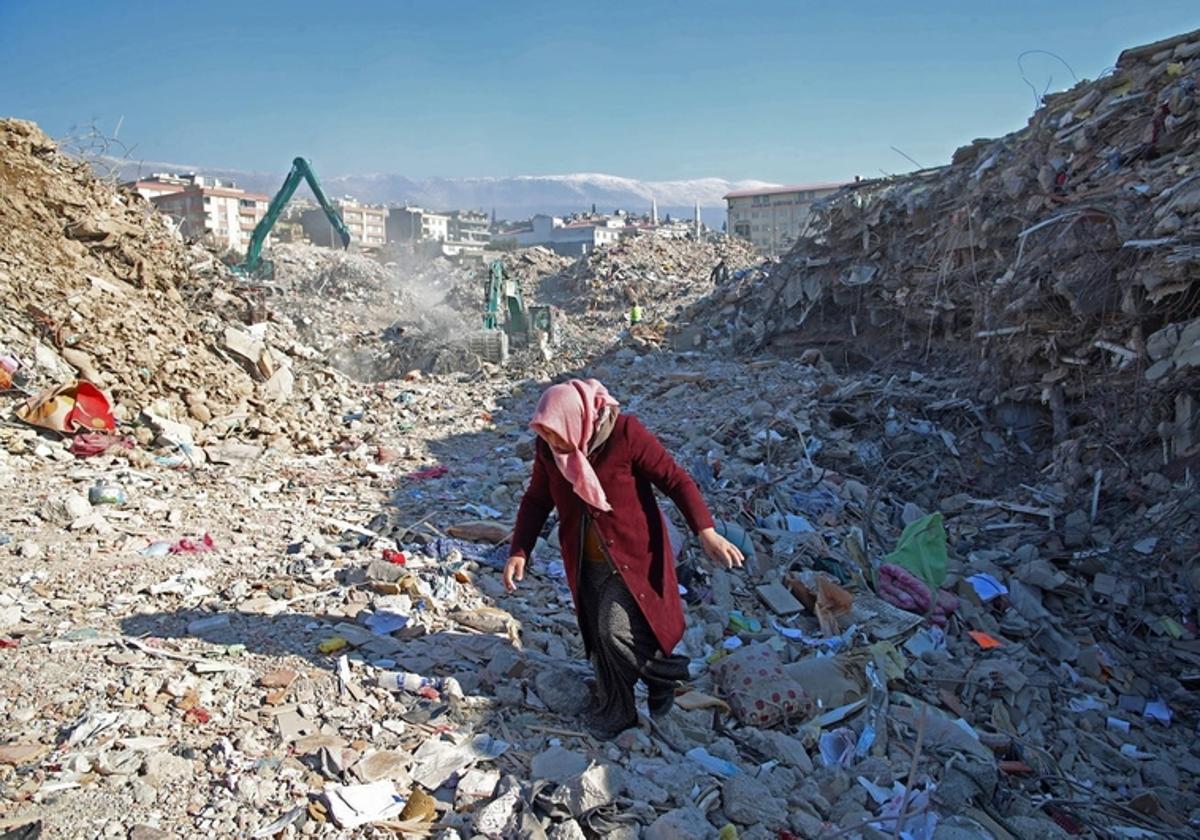Six months ago, a twin earthquake measuring 7.7 on the Richter scale and 7.6 on the Richter scale struck southern Turkey and northern Syria, killing more than 58,000 people. After the rescue phase ended, with intense international media coverage of the first day and pledges of help from Turkish politicians, some survivors were left frustrated and powerless as they went about their daily lives in the wake of the disaster with the threat of catastrophe. Asbestos under the rubble and a lack of water on days when temperatures exceed 40 degrees.
The quake affected 11 provinces in Turkey, and the real ground zero was the historic city of Antioquia, the capital of Hatay province on the banks of the Orontes River, with new areas devastated. Half a year after the disaster, the governor of Hatay, Mustafa Masatli, struck a balance when he assured that half of the capital’s buildings were completely destroyed or badly damaged, and 50% of the rubble had already been destroyed. It has been withdrawn, and requires another 100 days to complete the comprehensive cleaning work. Masatli also announced that “within three weeks” all citizens living in tents will be moved to containers and other prefabricated housing installed by the authorities. The problem is that residents have long lost faith in the promises of politicians.
Ahmed Taskin has no plans to leave his shop in downtown Antioquia and move to a container camp set up in the suburbs because “they are ovens in summer and refrigerators in winter. The retired professor has lived since the day of the earthquake in a shop in front of his house in a small park protected by trees. “We have a problem with drinking water and the only solution is to buy it from the market. We don’t trust politicians, we trust volunteers from Istanbul or Ankara who continue to give aid and don’t forget us. No rebuilding anywhere, They haven’t even finished removing the rubble yet, but we’re not surprised because politicians usually don’t follow through on promises before or after earthquakes.
Presidential elections were held in May, with both Recep Tayyip Erdogan and opposition leader Kemal Kilicdaroglu promising reconstruction and aid. What survivors need is to turn these words into action as quickly as possible. Professor Tuskin’s apartment is on the ground floor of a five-story building with huge cracks waiting for the arrival of heavy machinery to collapse it. The same goes for dozens of blocks in the central Antioquia neighborhood, just minutes from Ataturk Square.
asbestos threat
Lack of potable and non-potable water. Sevdar Yilmaz, director of Hatay’s medical unit, told Al Jazeera, “The biggest problem we have here is not using water when removing rubble and demolishing buildings (…). This can lead to many ailments in the future. Eye discomfort, throat discomfort and shortness of breath are already common. Water is key to disposing of the dust created during each demolition that sticks deep in the lungs.
“As a result of the demolition process, the threat of asbestos emerged. Asbestos is a material that is dangerous and harmful to human health. A study by the Turkish Association of Environmental Engineers found that about one in two buildings contained asbestos. Hatta Cuma Ali Özbek, field emergency manager at Médicos del Mundo (MDM), issued an alert message: “This poses a serious danger to people, especially in the area”. Spanish NGO for victims Primary care services are provided and “increased cases of conjunctivitis, allergic asthma and skin reactions” have been seen, all of which are linked to asbestos.
“We survived the earthquake, but because of the asbestos, we will face cancer in five or 10 years,” was the phrase repeated most often by his clients to Antioch lawyer Mohammad Ali Gumus. Gumbs lamented in an interview with the Associated Press, “Half a year after the disaster, we should be talking about new homes, not people waiting in line to get water.”
In addition to health concerns, the earthquake has caused economic problems for families, and the International Federation of Red Cross and Red Crescent Societies (IFRC) has urgently appealed for support for affected communities. “Many, especially those who have lost their homes and income, continue to struggle to meet their daily needs, including paying for food, rent and other necessities. ‘Normal’ life is far from them”, Red Cross Red Crescent Ruben Kano, head of the Federation’s Turkish delegation, pointed out.
If inflation and the devaluation of the lira at the national level were no small matter, the survivors would fight to restore their income streams. The IFRC says more than half of the families it helps are forced into debt to meet basic needs.

